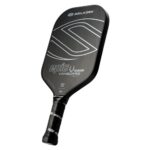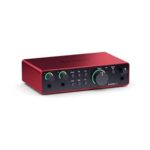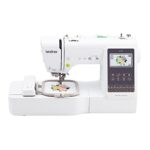Disclaimer: We may earn affiliate commission from qualifying purchases at no extra cost to you.
Yes, smart door locks can be hacked. Smart door locks are vulnerable to cyber attacks due to the fact that they are connected to the internet and thus have access points for hackers. Hackers can use techniques such as phishing or malware injections to gain access to a user’s account credentials, which could then be used to unlock the lock remotely.
In addition, some lock manufacturers also have poor security protocols in place that can make their products susceptible to hacking attempts. To prevent these types of hacks from taking place, it is important for users of smart door locks to take precautionary measures such as changing passwords regularly and using two-factor authentication whenever possible.
Yes, smart door locks can be hacked. While the technology used in these locks is highly advanced and secure, it’s impossible for any security system to be 100% foolproof or unhackable. As with most tech devices, hackers have found ways to bypass the encryption systems used by smart door locks and gain access.
To protect yourself from this type of attack, make sure you use strong passwords and regularly update your lock’s software as soon as updates become available.
How to Hack a Smart Lock
Hacking a smart lock can be done in various ways, depending on the type of lock you have. Generally speaking, it involves bypassing the lock’s security protocols by using specialized tools or software to gain access to its code. Some more advanced locks may also require physical manipulation of components such as keypads and sensors in order to open them.
It is important to note that attempting to hack a smart lock without proper authorization is illegal and could result in serious criminal charges being brought against you.
Can Smart Locks Be Hacked Reddit
Yes, smart locks can be hacked. Smart locks are vulnerable to cyber attacks because they rely on Wi-Fi and Bluetooth connections which can be intercepted by hackers. It’s important to use strong passwords when setting up a smart lock and monitor the system regularly for any suspicious activity.
Additionally, you should review the security features of your lock before purchasing it to ensure that it uses secure encryption protocols and has an independent access control system in place.
Are Smart Locks Safer Than Key Locks
Smart locks are becoming increasingly popular due to the added security they provide. Smart locks use electronic codes, fingerprint scans and other access control features that provide an extra layer of protection against theft or unauthorized entry when compared to traditional key-based locks. Additionally, these technologies allow for easy remote monitoring and control, making it easier to keep track of who is entering your home or business property at any given time.
Smart Lock Vulnerabilities
Recent studies have revealed that smart locks, while providing an increased level of security, can also be vulnerable to hacking. Smart lock vulnerabilities allow hackers to gain access to the system without physical keys and potentially unlock doors or disable alarm systems. To protect against these risks, it is important for users to ensure that their smart lock system is regularly updated with the latest software patches and security protocols.
Additionally, as smart locks rely on Wi-Fi connections and Bluetooth signals, these should be secured with strong passwords in order to prevent unauthorized access.
Safest Smart Lock
Today’s smart locks provide a safe and secure alternative to traditional door locks. Smart locks are equipped with features such as remote access, keyless entry, and alarms that alert you when someone is trying to gain unauthorized access to your home. With these features, you can be sure that your home is protected from intruders and that your valuables are always safe.
Additionally, many smart lock models come with an app-based system so you can keep track of who comes in and out of your home at any time.

Credit: www.youtube.com
Can Someone Hack Your Smart Lock?
Yes, it is possible for someone to hack your smart lock. Since most smart locks use Wi-Fi or Bluetooth technology to connect to your phone, there are a number of ways that hackers can gain access. If you have a weak password or leave the door open for too long, an attacker could gain access and unlock the door without you knowing.
Even if you have a strong password in place, attackers can still exploit other vulnerabilities in your system by taking advantage of security flaws in systems such as routers and webcams connected to your network. Additionally, some malicious actors may even be able to intercept signals from nearby devices and utilize them in order to bypass encryption protocols used by many popular smart locks today. Therefore, it is important that you take all necessary precautions when using a smart lock such as having strong passwords and enabling two-factor authentication whenever possible.
Are Smart Door Locks Secure?
Smart door locks are becoming increasingly popular as a way to provide additional security and convenience, but how secure are they? Smart door locks offer several advantages over traditional lock and key systems. They allow you to control access to your home remotely via an app, which allows for greater flexibility in providing access or preventing it.
Additionally, many smart door locks use biometric authentication such as fingerprint scanning or facial recognition technology for added protection against unauthorized entry into your home. Furthermore, some models offer two-factor authentication through the use of PIN codes or digital keys that can be shared with family members and guests. This provides an extra layer of security when granting someone temporary access to your home.
However, like any electronic device connected to the internet, there is still a risk of hacking with smart door locks if proper precautions aren’t taken. All wireless connections should be protected by strong passwords and encryption protocols; this includes both those used by the user’s mobile devices and those connecting their lock system to the internet (such as Wi-Fi). In addition, users should make sure they regularly update their firmware so that any potential vulnerabilities can be mitigated quickly.
Finally, when possible it is best to opt for models offering local (not cloud) storage of credentials in order not only keep them secured from hackers but also ensure continued operation if connection problems occur due to power outages or other types of technical difficulties. With these additional steps taken into account, smart door locks can provide reliable protection from intruders while allowing authorized individuals easy access without having carry around physical keys all day long!
Are Smart Door Locks Easy to Break Into?
Smart door locks are becoming increasingly popular, but it’s important to consider how easy they can be to break into. Many of the available smart door locks use a variety of technology and features like Bluetooth, biometrics and Wi-Fi in order to ensure that only authorized people have access to your home. However, these technologies also make them vulnerable to attackers who may be able to bypass or manipulate the security protocols.
Additionally, many smart door locks rely on batteries for power which can weaken over time leading to further vulnerabilities. It is possible for hackers with technical know-how and specialized tools such as lock picking kits or decoders to gain entry into a locked building through traditional methods even with smart door locks installed. Therefore, while smart door locks do offer an increased level of security compared to traditional locks, they are not impenetrable if someone knows what they are doing and has the right resources at their disposal.
What are the Disadvantages of Smart Locks?
Smart locks can bring a certain degree of convenience, but they also have their drawbacks. Smart locks are expensive and require an up-front investment that may not be feasible for all homeowners. Additionally, there is the potential for malfunctions due to faulty hardware or software issues as well as outages caused by internet connectivity problems.
If something goes wrong with your lock, you may be locked out of your house until it gets fixed which could potentially take days or weeks depending on the severity of the issue. Moreover, smart locks rely on wireless technology such as Bluetooth and WiFi which makes them vulnerable to hacking attempts from cyber criminals who can potentially gain access to your home without you knowing it. Finally, if you forget or lose the electronic device needed to unlock the door (such as a smartphone), then you will be unable to get into your own home unless you know how to override manually with a key code – something that not everyone knows how to do.
Watch engineers hack a ‘smart home’ door lock
Conclusion
In conclusion, it is evident that smart door locks can be hacked. While they offer convenience and the promise of security, their potential vulnerabilities must not be overlooked. It is important to take necessary precautions such as regularly changing passwords and updating software to reduce the risk of being hacked.
Ultimately, homeowners should always remain vigilant when it comes to protecting their home from intruders or hackers.

Meet Jeremy E. Hendley, a seasoned product review expert whose passion for technology, innovation, and consumer empowerment has propelled him to the forefront of the industry. With a keen eye for detail and an insatiable curiosity about the latest gadgets and innovations, Jeremy has become a trusted voice in the realm of product reviews.







